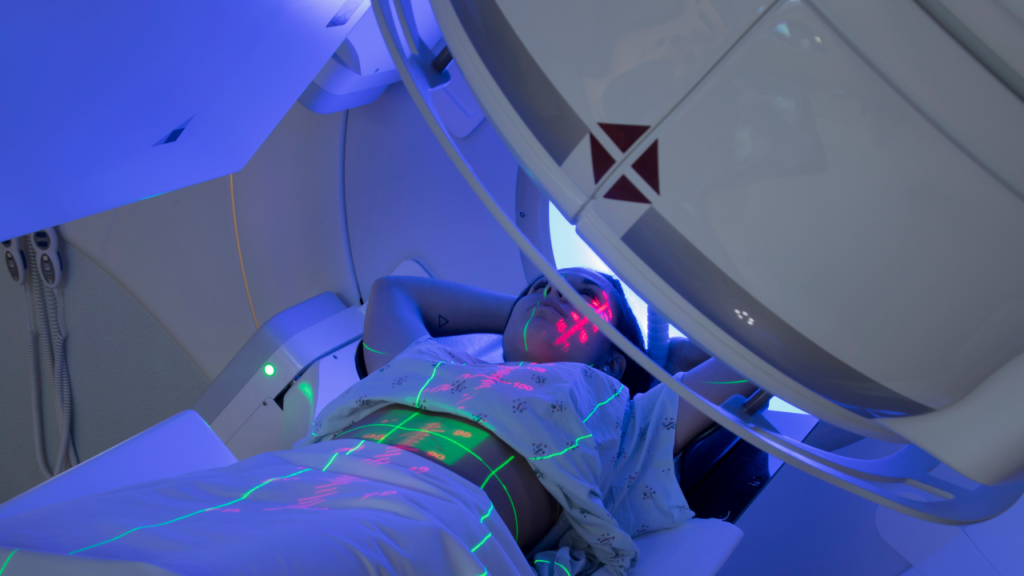
Radiation Oncology as a Specialty
There are less than 200 PAs working in the US in Radiation Oncology and Joann Timberlake is one of those. Starting a job in a new specialty, especially one so sparsely populated with PAs, is intimidating. Luckily Joann was willing to share with us how she broke into this role, transitioned out of the ER and into Rad Onc and what that process was like for her.
I wanted to invite her on the podcast to share more about what her life is like now vs. when she was working shift work in the Emergency Department. There were growing pains with having to prove her abilities, that she is a trustworthy partner in the care of these cancer patients and the incredible value she can add to her Radiation Oncology physician partners. Joann aims to treat the entire patient; mind, body, spirit and soul in her practice and you aren’t going to want to miss her sharing her servant spirit and heart for patients and their excellent care.
Treating the Entire Patient
Cancer is an all encompassing diagnosis, but in every specialty and setting in medicine it’s prudent to remember that we aren’t treating a disease, a number, a lab result of a vital sign. We are treating a whole person.
Joann recommends asking your patients one simple question to improve the bond with the person you are treating. Ask the patient “How are you feeling?” and then ask for details with phrases like “Tell me more” and “Why” or “How” or “What”. Be diligent and actively listen to their symptoms, mental state, and concerns that they share with you in answer to this questions.
Remember that your patients are entire human beings, grappling with their identity, mourning shifts in their life that come from changes and diagnoses. Each patient you encounter can be dealing with mental health aspects as a result of or in addition to their physical medical conditions.
Watch the YouTube Video Here

Self-Care as a Radiation Oncology PA
Joann is very clear on this episode of The PA Is In that she is ruthless about her sleep and exercise schedule. Self-care is crucial in an emotionally heavy specialty like Radiation Oncology.
Over time she has come to realize that it takes her an hour to decompress from the stress and emotional toll that a day in clinic brings. She will exercise between work and home or spend that hour getting outside for fresh air and walk the dog.
These actions complete the stress cycle and serve as a buffer between the mental, physical and emotional toll of work and the different demands of being home with your family.
Switching from ER to Radiation Oncology
Just out of PA school, Joann landed a job in the Emergency Department. She jokingly shares that she didn’t choose the ER, the ER chose her. She worked there for years and loved the acuity, the problem solving and the position in general.
But when the time came to make a change, when her personal life demanded a more regular daytime schedule than the ER could provide, she leaned on her network.
One of her colleagues shared with her about this inaugural position as the first Radiation Oncology PA in the group.
Being the First Rad Onc PA
Here’s the thing about being the first of anything, you are blazing the trail and setting the example for those who will come behind you. And you will meet resistance from those in the group who don’t “get it” or see the full clinical potential of PAs.
There are countless benefits to having a PA join any group in any specialty. Joann shares that her being in this group provides patients with improved access, decreases wait time, improves the responsiveness to patient questions and calls and affords the patients the high level consistent continuity of care they deserve.
PAs Goal and Role
As we wrapped up our interview Joann shared something that’s been resonating in my mind since the day we hit record:
As PAs we have to know both our goal and our role. This is twofold. One, to advocate for the patient. Two, to advocate for yourself and our profession.
What a profound and important reminder that as PAs it’s our job to advocate for the patients we are caring for, but also for ourselves and the profession at large. Each one of us who does this inches the profession forward and improves patient care incrementally. These changes, inch by inch, and degree by degree, add up and matter greatly.
If you are looking to improve your chances of achieving that goal and satisfying that role as a PA, you’re going to want to use the PA One Sheet in your next discussion advocating for your patients and yourself.
